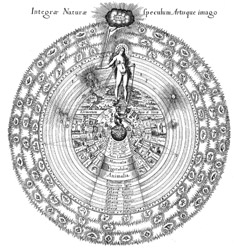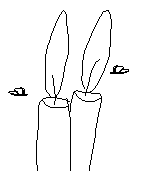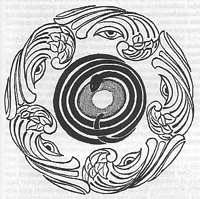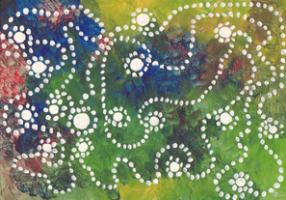Heart, if you sit amongst thorns and don't choose
To pick flowers all day from the garden,
What can I do? His face lights the whole world,
But if you can't see it, what can I do?
#1161: From Rumi's Kolliyaat-e Shams-e Tabrizi
Last night I attended a meeting intended to unite Muslims and Christians together in commonality and community. Instead, tension and strife arose. The thorns came out.
And I approve of those thorns. I do think that grievances, anger, fear, even hatred must be aired. How else can you work through to love?
Rumi here seems to depict the issue as one of choice. We can choose love or we can choose hate. We can choose war or we can choose peace. It's simply a matter of choice and commitment.
The Muslims last night made no reference to Rumi or to any of their mystical tradition. Their attention was simply on Mo and the Koran (free copies of which were available on a stall in the foyer). They have so much that they could draw on. There are so many flowers in the garden of Islam. Why did they fail to pick them and display them?
Fear, I think. Deep down, it's fear. Thorns are the product of fear. We bristle with defensive weapons when we fear an end of our peace and stability. A clash of such different cultures must change each and at least for a while there must also be some instability.
When I was young it was the clash or tension between the communist Soviet Union and the capitalist West. The end game was envisioned as a nuclear holocaust. Today the clash is between Islam and the West which is depicted as infected with secularism and materialism. Last night, the Christians were there to agree with that much.
Looking back, I don't think that communism failed altogether. Many countries have a socialist or community-based agenda. The United States isn't too good at this still, it retains a very individualistic agenda. However, a conflict will often be resolved by each side having some sway, each value being honoured in its own way.
Where there is religion in the US, it is more often of a strong fundamentalist type, which is as repugnant to me as is fundamentalist Islam. What overrides specific religious values, however, is the central belief in the right of the individual to choose his or her own religion. The choice must lie with the individual, just as Rumi envisages a choice between thorn and rose.
The dilemma lies in the so evident thorniness of mainstream Islam. Muslim apologists love to quote the very very isolated instances of religious tolerance in the Koran and in the stories of Mo. There is indeed one clear passage in the Koran but it is offset by dozens of others that disparage, disavow, disown, and distance, to the point where
disallow so easily follows. I will limit myself to just three.
Qur'an 2:256 (Yusuf Ali)
Let there be no compulsion in religion: Truth stands out clear from Error: whoever rejects evil and believes in Allah hath grasped the most trustworthy hand-hold, that never breaks. And Allah heareth and knoweth all things.
............................
4:144
O ye who believe! Take not for friends unbelievers rather than believers: Do ye wish to offer Allah an open proof against yourselves?
17:8
It may be that your Lord may (yet) show Mercy unto you; but if ye revert (to your sins), We shall revert (to Our punishments): And we have made Hell a prison for those who reject (all Faith).
29:68
And who does more wrong than he who invents a lie against Allah or rejects the Truth when it reaches him? Is there not a home in Hell for those who reject Faith?
Through the Koran, Mo is relatively gentle toward Christians:
5:82
Strongest among men in enmity to the believers wilt thou find the Jews and Pagans; and nearest among them in love to the believers wilt thou find those who say, "We are Christians": because amongst these are men devoted to learning and men who have renounced the world, and they are not arrogant.
However, for a neo-gnostic like myself, with no exoteric faith, I might as well be an atheist, a person of no faith at all.
I see thorns everywhere in the Koran: vicious, resentful, hate-mongering, even war-mongering phrases. The very opening Surah puts me right in my place, straight away.
Qur'an (Pickthall)
Surah 1. al-Fatihah: The Opening
In the name of Allah, the Beneficent, the Merciful.
Praise be to Allah, Lord of the Worlds,
The Beneficent, the Merciful.
Master of the Day of Judgment,
Thee (alone) we worship; Thee (alone) we ask for help.
Show us the straight path,
The path of those whom Thou hast favoured; Not the (path) of those who earn Thine anger nor of those who go astray.
Thus does Mo seem to feel the need to darken everyone else so the light of deity can only fall on Islam. Bah! What a prat!


 and there seems to be little resemblance between the two words at all. Perhaps the translator, Zara Houshmand, has taken some liberties with the original, the text of which appears below.
and there seems to be little resemblance between the two words at all. Perhaps the translator, Zara Houshmand, has taken some liberties with the original, the text of which appears below.





